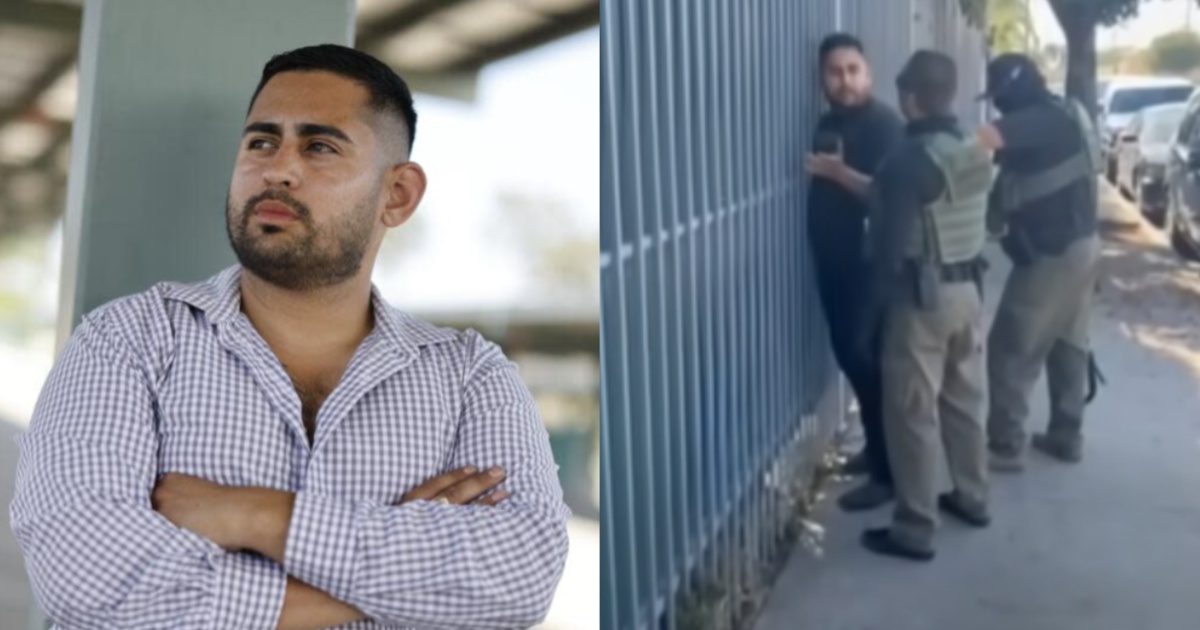Jason Brian Gavidia, a self-described proud American with “We the People…” tattooed across his back and a now former supporter of President Donald Trump, is now one of his harshest critics after a tense encounter with U.S. Immigration and Customs Enforcement agents changed everything.
Gavidia, 29, was walking with his friend Javier Ramirez in Montebello, a majority-Latino city east of Los Angeles, when two masked, rifle-carrying ICE agents stopped them and demanded proof of citizenship. “I am American, bro!” Gavidia protested, as one agent pressed him against a wall and asked, “What hospital were you born?” Gavidia replied, “East L.A., bro!” Ramirez recorded the altercation before being wrestled to the ground and taken to a detention center.
Shaken by the confrontation, Gavidia said he believes he was racially profiled and targeted simply for “walking while brown.” The incident prompted him to renounce his support for Trump’s administration. “He ran on lies,” Gavidia told NBC Los Angeles.
“We were all manipulated, we were all brainwashed, and now look at us. We’re all suffering because of it. And I feel guilty 100 percent.” Holding a pocket-sized copy of the U.S. Constitution, he asked, “Where’s the freedom? Where’s the justice? That’s why I’m protecting the Constitution.”
Gavidia is now one of seven plaintiffs in a class-action lawsuit filed by the American Civil Liberties Union against the Trump administration. The lawsuit contends that immigration enforcement operations in Southern California relied on racial profiling, detaining people based on their race, accent, or location rather than any lawful basis.
Making D.C. safe again!
ICE Homeland Security Investigations special agents and our federal partners are working to restore the grandeur of our nation’s capital city. pic.twitter.com/SvmTizNc3U
— U.S. Immigration and Customs Enforcement (@ICEgov) August 12, 2025
In July, a federal judge issued an order barring immigration agents from making such arrests in seven Southern California counties. The Ninth Circuit Court of Appeals upheld that ruling in August, rejecting the Trump administration’s argument that factors such as language or workplace could be used as grounds for suspicion.
Civil rights advocates have hailed the decision as a critical protection against discriminatory enforcement, warning that overturning it could erode constitutional rights. The Trump administration is now appealing to the Supreme Court to reverse the lower court’s rulings.
Gavidia, once a staunch MAGA supporter, has turned his experience into activism. He participates in “Know Your Rights” workshops and carries informational cards to help others navigate encounters with law enforcement. He says the goal is to ensure no one else experiences what happened to him and Ramirez that day in Montebello.
What began as a routine walk in his own neighborhood became a defining moment for Gavidia, one that shifted his political beliefs and set him on a new path toward civic engagement and advocacy.
Critics have long accused ICE of fostering a culture of racial profiling and excessive force, pointing to incidents where U.S. citizens and legal residents were detained during sweeps.
Advocacy groups argue these actions erode trust in law enforcement, particularly in immigrant communities, and create a chilling effect on reporting crimes. ICE officials have denied systemic wrongdoing, maintaining that all operations are conducted within the bounds of federal law.









